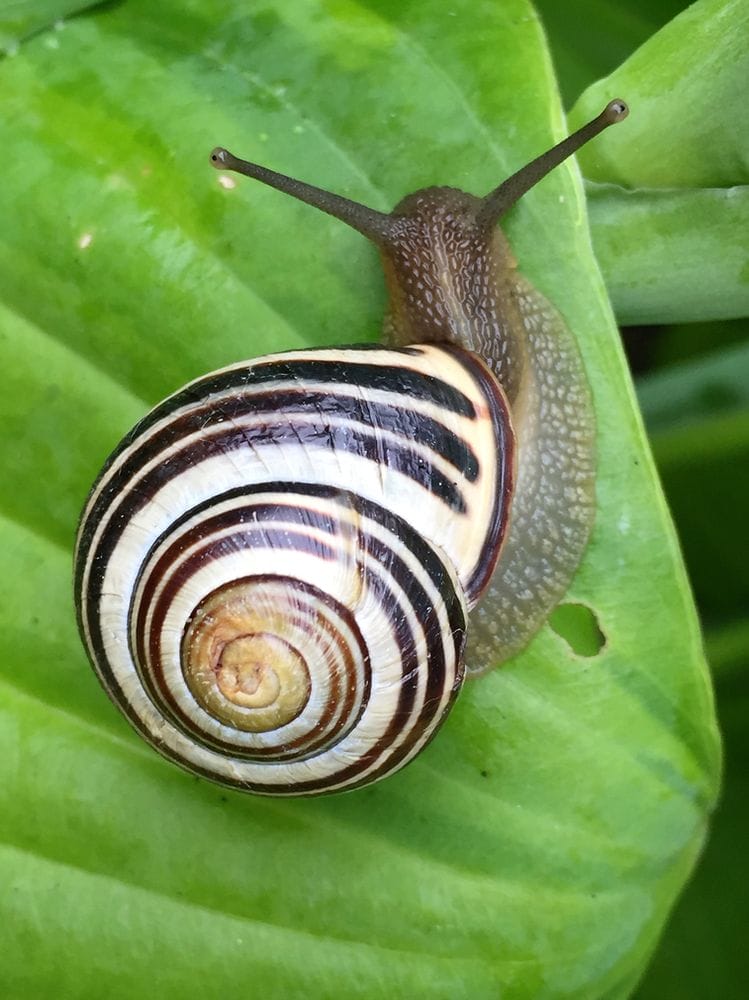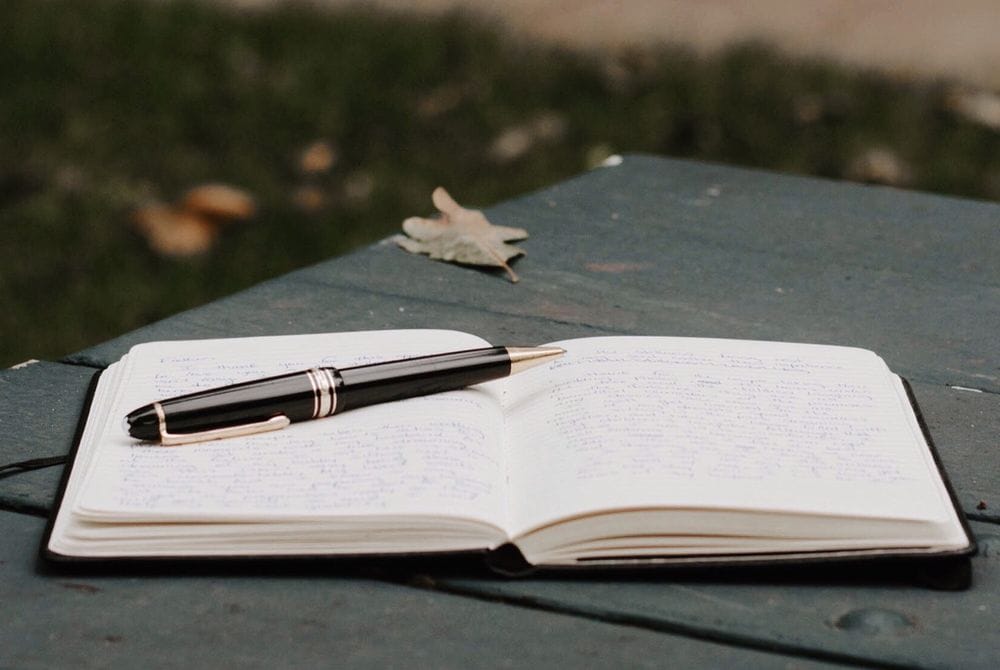“Live as if you were to die tomorrow. Learn as if you were to live forever.”

Table of Contents
Introduction
As a Neuropsychologist, I work primarily with people (many of them new empty nesters or newly retired) who are concerned about memory.
Some of these people have legitimate concerns (which are beyond the scope of this article), however, it is often the case (most frequently when it is the person themselves noticing the memory issues) that the trouble they are having with things like “remembering yesterday” have nothing to do with memory at all.
Another common complaint I hear is regarding a sense that, “life is passing me by” too quickly. People are concerned about this sense of “losing time”, wondering if this is normal and if there is anything that can be done about it.
If at least one of these examples sounds like you, read on. Below, I’ll provide some background and 12 very practical tips to slow life down and help you with remembering yesterday.
(Of course, when I talk about how to “slow life down”, I am talking about the perception that life is slowing down, not quantum physics. For that, you’ll need to head to an entirely different department of the University. )

Do You Have Trouble Remembering Yesterday?
How often do you wake up, go through the motions and end the day feeling like you haven’t accomplished anything?
Or…found that you actually cannot remember much about what you did the day before, or the day before that?
Most likely, the issue isn’t with your memory, it’s with how you are spending your time. Your “novel to routine ratio” is out of whack and you’re likely not living mindfully.
It’s time to slow down and to find new things to try!
Do You Feel Like “Life is Passing Me By” Very Quickly?
Doing many of the same things day after day is natural, comfortable and requires very little energy. Our brains are set to autopilot mode for much of each day.
This is absolutely necessary because we’d be completely overwhelmed if we had to make hundreds of decisions every single day, however, if your routine isn’t mixed with new experiences, this can lead to boredom, sadness, feeling “stuck” and the perception that your life is passing you by very quickly.
Do You Feel Life Passing By More Quickly as You Get Older?
It’s not just your imagination. This is a real phenomenon that most people experience.
It makes sense if you think about it. As we age, it becomes more and more difficult to find new experiences because we’ve already been exposed to so many things.
On top of this, we are biologically programmed to seek out less new relationships and new experiences as we age.
Think back to your 20s. Think about how excited you were about and how much energy you put toward meeting new people and learning new things.
Compare that with now. See the difference? This biological change happens to all of us. (See “Why Making Friends in Midlife is So Hard”.)
If you’ll forgive the metaphor, the phrase “you can’t teach an old dog new tricks” has more to do with the “dog” not being interested in learning new tricks than her brain not being cognitively able to do so.
You CAN Do Something To Slow Life Down!
Engaging in new experiences will make you happier, reduce your feelings of stress, help you be more creative, build your confidence and increase your resilience.
As if that’s not enough to convince you…doing new things will give you the sense that time is slowing down because your brain has to turn off auto-pilot mode and actually pay attention.
The trick is finding the right balance of routine and new experiences FOR YOU.
Unfortunately, there are no “recommended daily requirements” for time spent engaging in novel experiences to avoid depression and boredom (etc…). This is likely, at least in part, because the time needed is different for everyone.
But…I do believe that this is a good way to conceptualize this concept. We each have our own optimal “routine to novel” ratio and it’s up to each of us to figure out what that is.

12 Tips To Slow Life Down
Now that you understand that what you do with your time influences how quickly you perceive your life passing by, as well as how memorable that time is, let’s talk about some practical, next steps.
These steps can help you have less trouble remembering yesterday and feel less like life is passing you by at lightning speed.
Slow Life Down With Mindset Modifications
1. Create reminders that life is finite
Although the human lifespan is relatively long, if you’re not intentional about how you spend your time, you will feel like life is passing you by very quickly.
I wear a “memento mori” (Remember, you will die) bracelet most days and also have an app that sends me a notification at 9am each day telling me approximately how long I have left to live.
Most people think this is bizarre, morbid and depressing… but, for me, it’s energizing, motivating, helps me view the world in a more grateful way and makes me feel less like life is passing me by too quickly.
Find your own ways to take a minute each day to remember that your time on this Earth is limited…and then find a way to remember to remember …that works for you. (A note on your bathroom mirror, a calendar reminder, a daily alarm…and so on)
2. You DO have time!
Understand that you DO have time for finding new experiences to try in order to slow life down. Banish your limiting beliefs and the phrase, “I don’t have time” from your vocabulary. It’s an excuse and it’s actually not accurate.
You DO have time…to do whatever you prioritize.
Understand that how you choose to spend your time is under your control and be intentional about it. A more accurate statement than “I don’t have time” is, “that’s not a priority for me right now”.
(The best way that I know of to start the process of knowing how to prioritize your time is to do a core personal values exercise.)

Slow Life Down With Goals
3. Establish goals and track your progress
Setting and regularly (I suggest weekly) tracking goals can lead to feelings of time slowing down because it forces you to take a break from your routines, take a step back and acknowledge your goals and the steady progress you’ve made at many time points along the way.
4. Create a bucket list
Brainstorm a list of 100 things you want to do in your lifetime. 100 things is such a long list that, after you finish all the big stuff, like visiting Machu Picchu, you’ll find yourself needing to think of smaller, more daily experiences that are likely to be memorable.
The (very important) next step is to start planning to do these things. This exercise will not only provide you with a great set of new experiences and opportunities to make memories and slow life down, it will also build positive anticipation of exciting things to come.
5. Celebrate (big and) small wins
Take a minute each day to recognize your accomplishments, no matter how small. This will help you feel great about yourself and your successes and will also contribute to your perception that time is slowing down.
This happens because, as you disconnect from the hustle and bustle of life and the continuous striving toward achievement to acknowledge and celebrate each accomplishment, you are consciously marking a memorable milestone.
This process makes daily actions stand out from the flow of continuous time and appears to lengthen the course of time as you look back on your life and perceived progress.

Actively Start Finding New Things to Try
6. Prioritize Trying New Things
As mentioned already, it’s quite natural for us to seek out new experiences less and less as we age. This lack of novelty is one of the biggest factors contributing to the feelings we have of life passing more quickly as we get older.
Knowing the positive impact of new experiences on our mental health, when I created The Trybe Women’s Social Club, I chose the “Try” spelling of Trybe and made our motto “Trybe New Things”.
Trying new things is broadly defined. It can include taking up interesting new hobbies, learning about a new topic, starting a new business, one-off adventures and meeting new people.
Small changes in our everyday routines, things as simple as cooking a new recipe for dinner or driving a different route to the store, can also make a huge difference and help make us feel like life is passing by more slowly.
I remember the 1st time I drove home from work to a new house. The drive seemed to take forever as I paid attention to every house, tree and road sign I passed. (I remember thinking “we have moved WAY too far away”.)
Fast forward a few weeks and the same drive routinely flew by as the scenery blurred from my awareness and I spent the drive focused instead on thoughts about work or home life.
As you should with relationships, exercise (and any other activities critical to your health), don’t relegate finding new things to do to the end of the day or (worse) to “when I find time” (you know, that mythical time in the future at that “future you” will have once you are caught up on everything?) piles.
Instead, proactively schedule time for new experiences to try on your calendar.
Without prioritizing and planning, you’ll slip into low-energy default mode and do whatever (usually) low-quality activity is easiest in that moment (TV, social media etc) and results in feelings of life passing you by very quickly.

7. Embrace technology to find new things to try
There has literally never been a better time in history to find new things to do! Our world is changing extremely quickly and there are nearly an infinite number of new things that can be experienced and learned.
I’m constantly amazed that every time I go online to look up something someone has told me about (something I had never even heard of before that very day) I find there is an entire subculture of thousands – if not millions – of people who love and/or teach this exact thing!
8. Travel can slow life down
Travel, by its very nature, is packed with new places, new people and new things to try. Therefore, it is one of the most impactful ways to create vivid, lasting memories and to achieve the perception of life passing by more slowly.
Check out our article about traveling with purpose, for more info on this topic.
9. Volunteer to slow life down
Volunteering your time is another great way to slow life down because you will be exposed to new people, develop new skills and have the opportunity to learn about new things to try that you would not have otherwise.
10. Join a Social Club
There are so many benefits of joining social clubs. For one, social clubs do the “hard work” of finding all kinds of new experiences to try. (Including finding many experiences that you would never think of.) The planning is done for you. All you have to do is show up!
If you don’t have a social club where you live (consider starting one of your own!), simply start searching for activities and events near you. Ask your friends what they do for fun.
You can also check out this list of 78 social event ideas for inspiration.
While doing your research, if you find yourself thinking, “I have no idea what that is…” or “I don’t like to do…”, these are perfect opportunities for personal growth and to slow down time. DO THESE THINGS. The stakes are very low.
You’ll not only be surprised by how much fun you had, who you met and what you learned, but you’ll also have something interesting to say the next time someone asks you what you’ve been up to.

Slow Life Down By Paying Attention
11. Practice mindfulness
You hear a LOT about “mindfulness” these days, but for our purposes, mindfulness is essentially referring to when your brain is focused on living in the moment and aware of your surroundings and current experiences.
It is the opposite of multitasking (which is a myth, by the way, but that’s a topic for another article).
Mindfulness means not letting your thoughts wander into dwelling on the past or anticipating the future.
Let’s take laundry as a very simple example. To mindfully fold laundry, you would focus on the task at hand, noticing the fresh smell, the softness and warmth of the clothing and your thoughts would be about well…folding laundry…or, perhaps about the fact that you are taking care of your family, benefiting your health and treating your possessions respectfully.
Does this sound like how you fold laundry? Me either.
Most of the time, a task like folding laundry is a good example of our brain’s tendency to “take a break”, slip into autopilot and daydream about the past or the future. It’s also an example of how our brain can help us by making a routine task that we do not particularly enjoy pass by more quickly.
I chose folding laundry as our example though because it illustrates that even a very simple and highly ordinary task can be turned into an opportunity to slow life down and create memories.
We just have to choose to focus and be mindful in these moments.

12. Reflect often
I’ve left this tip for last because I believe it is the most important. Taking time (preferably toward the end of) each day to reflect on life serves as an incredibly powerful tool to foster a sense of inner peace and tranquility and to combat the feeling of life passing by too quickly.
Reflection allows us to appreciate life more fully, to notice the beauty and joy in ordinary moments, and to infuse our days with a calm sense of accomplishment, making life seem to pass more slowly and memorably.
The technique you use to reflect isn’t important. What matters is that you choose something you enjoy and will continue doing. Here are just a few ideas.
Journaling. Writing in a journal encourages introspection like few other techniques, which is why it’s one of the most popular. Through writing, you can articulate thoughts, feelings, and ideas that may otherwise remain unexplored.
Writing also creates a nice record of your life, which can be reviewed and reflected on (reflecting on reflecting, how meta!) periodically.
Meditation. Meditating daily promotes mental clarity and emotional calmness. Through focusing on your breath or a mantra, you can create a sense of inner peace that allows for deeper self-reflection.
Thinking Time. (This is one of my favorites because it’s incredibly easy.) This technique is similar to (and could be considered a form of) meditation. “Thinking Time” simply involves spending a few minutes alone just letting your mind wander over and acknowledge the events of the day.
Walking in nature. A quiet walk in nature can offer the perfect, serene environment for inspiring reflection.
Running. Running is not only a great way to exercise, but is also as very useful avenue for reflection. The solitude and the rhythmic cadence of your steps offer a unique space for contemplating and processing your thoughts about the day’s events.
Reviewing photos. Looking back at photos can serve as one of the most powerful tools for reflection. These visual narratives capture important moments and milestones, encouraging us to pause and revisit our past experiences.
Final Thoughts
As a Neuropsychologist, people often come to me with concerns about not being able to remember what they did yesterday (or last week) and feelings that life is passing them by too quickly.
Whereas there is sometimes a reason for concern, more often (particularly if the person can give me a list of things she forgot) the source of this frustrating problem is a lack of novelty.
This article provides 12 tips that you can use to slow life down including proactively shifting your mindset toward novelty, actively focusing on setting new goals, bringing new experiences and people into your life, and taking time to be mindful and reflect upon each day.
More From Our Blog
I'm Dr. Angela Caveney. I'm a Clinical Psychologist, Neuropsychologist, Founder of The Trybe Women's Social Club and leader of the Midlife Reimagined Mastermind.
If you are interested in learning more about the Mastermind or in creating a community of your own, reach out to me at angela@the-trybe.com to start the conversation.


